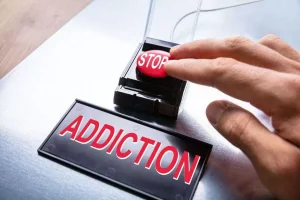
A higher tolerance for alcohol does not mean the body is impervious to the effect of alcohol; it means that drinkers should be more cautious. Dr. Oesterle leads Mayo Clinic’s inpatient rehabilitation program for addiction and says he often sees alcohol use become a problem for people after they retire. When these people were employed, they may have been too busy to consume copious amounts of alcohol. But without a routine or daily responsibilities, alcohol use can more easily spiral, he says.
- There is help available to you if you or a loved one has a physical dependence or psychological dependence on alcohol.
- While wine can be enjoyed in moderation, it’s crucial to recognize when your love for wine crosses the line into addiction.
- Like all alcohol, especially when consumed in excess, wine lowers your inhibitions and interferes with judgment.
- From that perspective, it is a sign of inability to cope with a stressor; behind the psychology of addiction is a sense of powerlessness, and it always a sign that better stress-management skills are needed.
- These signs, similar to those of intoxication, exist in the absence of drinking.
- This behavior increases your risk of sexually transmitted diseases and unwanted pregnancy.
What is considered 1 drink?
While the best-known signs of addiction may be physical changes in a person—weight loss to the point of emaciation, the red face of problem drinkers—those occur late in the course of substance use. Addiction can reveal itself in physical signs, as well as psychological and behavioral ones, although is wine addictive they are not diagnostically specific for the condition. Substance users may have dilated pupils or glazed eyes, slurred speech, and ramble when they talk. They can show changes in movement patterns—depending on the type of substance involved, psychomotor retardation (heroin) or jumpiness (cocaine).
Myth: If you’re menopausal and having trouble sleeping, alcohol can help you sleep better.
- Drinking when you don’t want to or when you’ve said you aren’t going to is a sign of addiction.
- Five ounces of wine has approximately 12 percent ABV, while 12 ounces of beer has about 5 percent ABV.
- Being dependent on alcohol has a range of harmful physical and psychological effects.
- Kali Lux is a consumer marketing leader with a focus on healthcare and wellness.
- Problems are rated on a scale of 1 to 5 by domain, reflecting how bothered a person is by problems of that type.
Wine addiction is a type of alcohol addiction (also called alcohol use disorder). This disease makes you feel unable to control your drinking habits and wine use. This behavior isn’t always harmful, and some believe it may even have health benefits. However, it can lead https://ecosoberhouse.com/ to binge drinking, heavy drinking, and other harmful patterns of alcohol consumption. It can be a little confusing to find out how wine intake can impair health. Alcohol has a lot of calories without providing much nutrition and tends to stimulate the appetite.

Myth: If you’ve been drinking responsibly for years, you’re not going to become addicted to alcohol.
People who are dependent on alcohol often experience poor mental health. These alcohol-related health problems can affect non-dependent drinkers too. That’s why, to keep health risks from alcohol to a low level, the UK Chief Medical Officers (CMOs) advise it is safest not to drink more than 14 units a week on a regular basis. You could look at drinking alcohol like skydiving, Dr. Oesterle says. There is no recommended number of times that someone should jump out of a plane. It’s fun for some people, but there is no medical reason to do it or health benefit from it.
Increased tolerance means that over time, you’ll need to increase your alcohol consumption to achieve the same pleasurable effect. Excessive drinking can cause weight gain, which negatively impacts cardiovascular health. Too much wine can cause you to completely lose consciousness or ‘blackout’. Some people also experience memory loss and time misperceptions when they overindulge.
- Establish realistic goals for reducing or eliminating your wine consumption and track your progress.
- When that substance is suddenly unavailable, that absence leaves many brain operations exposed and interferes with the various functions.
- If an individual has school or work obligations that prevent them from living at a treatment center, outpatient treatment is a good option.
- In the short-term, wine can lead to relaxation, drowsiness, impaired judgment, impaired movement and speech, increased blood pressure, blackouts, unconsciousness, and hangovers.
- American Addiction Centers (AAC) is committed to delivering original, truthful, accurate, unbiased, and medically current information.
- You are encouraged to report negative side effects of drugs to the FDA.
It is estimated that 80 percent of long-term heavy drinkers suffer from some degree of thiamine deficiency. They can be set in motion by past memories or current environmental cues relating to substance use and are thought to be a force behind relapse, although they are not a clinically consistent predictor of relapse. Any cue with emotional significance registers on the brain’s amygdala, which then activates the nucleus accumbens and its dopamine neurons. Their activation gives rise to the sense of motivation, experienced as a highly focused urge to seek the substance.

Red wine and digestion
This is why some people drink wine in the evening to ease out of a stressful day and prepare for bedtime. You get off at midnight, you’re wired, then you go out with a bunch of people who are in the business because of the flexibility and the transient nature of restaurant work. There’s a lot more professionalism now and a lot more structure, especially in the best restaurants. Hanni has been sober for 25 years and his perspective is, obviously, both informed and unique when it comes to maintaining a healthy lifestyle while working as a professional in the alcohol industry. Though Hanni is exceptionally articulate and candid about his experience, he maintains that he is far from alone in the struggle against over-consumption and lack of balance. If you or a loved one struggles with an alcohol use disorder, contact us at Cal Recovery Center today to learn more about our programs and how we can help you overcome your struggles with alcohol.

How Many Ounces Are In A Glass Of Wine?
- In general, consuming a moderate amount of wine is safe for most people.
- Loneliness is on the rise, and for many people, turning to social media for connection has become a daily habit.
- People who are seriously dependent on alcohol can also experience physical symptoms of alcohol withdrawal like shaking, sweating or nausea when their blood alcohol level drops – for example, before their first drink of the day.
- I felt that it would be ripping a huge part out of my life to stop drinking.
- Sometimes, someone who is addicted to wine may be referred to as a wino, which is a derogatory term for an alcoholic who likes cheap wine.
- As addiction progresses, the psychological and life problems it causes tend to increase—and the trap can feel too deep to climb out of.
